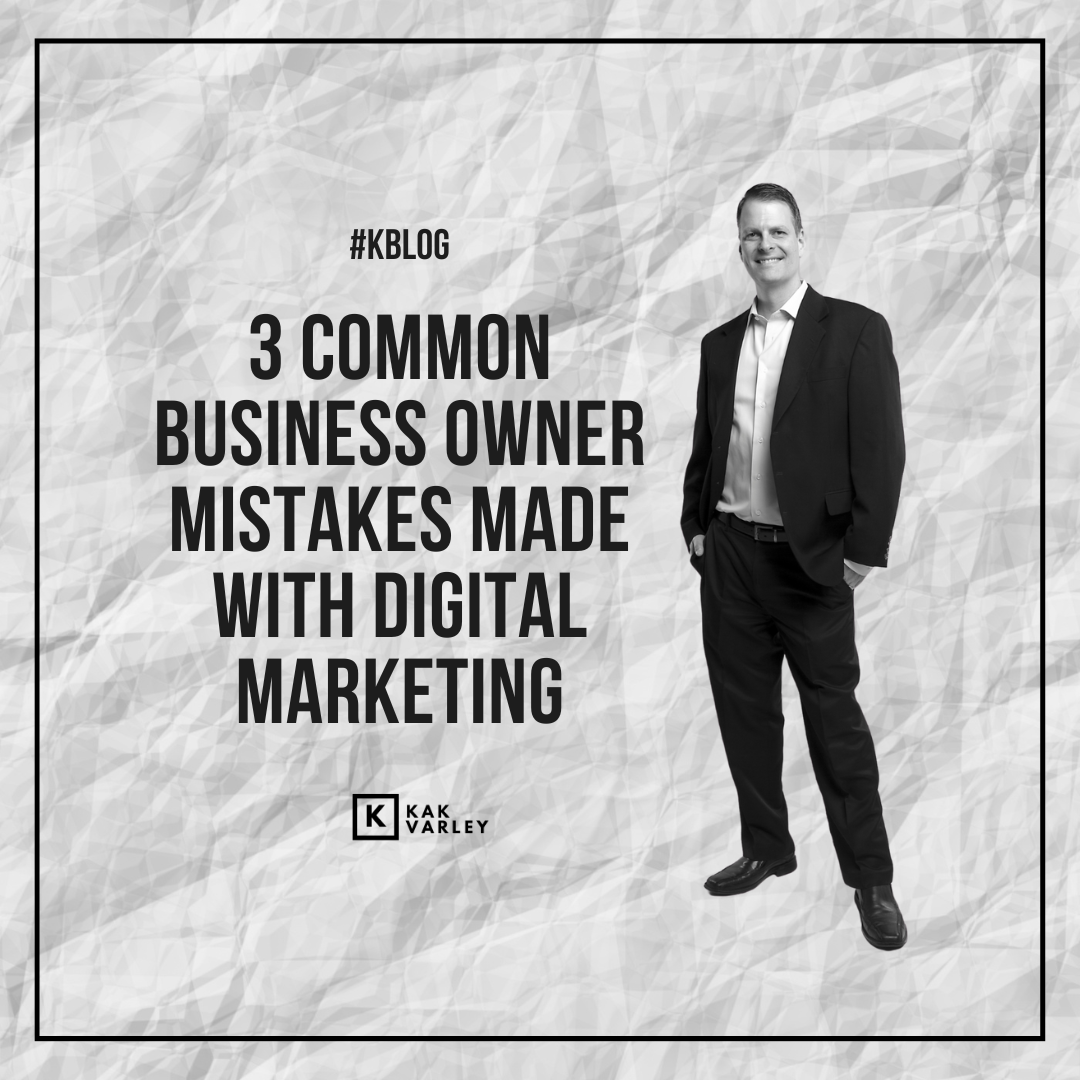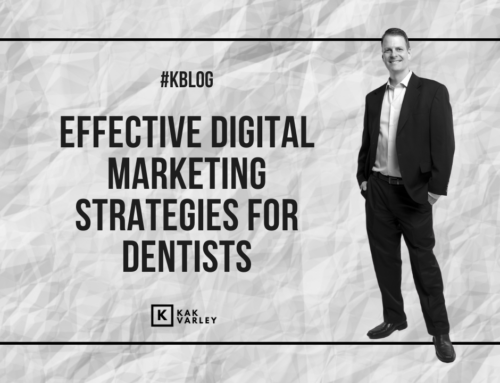
Bringing value to a business owner that is (or is about to) leverage digital marketing is a very passionate subject for me. Mainly for that business owner who wants to attempt to make money from their digital marketing efforts.
This listicle centers more on humans because what makes a digital marketing plan fail is almost always based on the influence of people’s decisions, actions, and/or a company’s structure. In other words, the situations around digital marketing often affect the outcomes.
Done right, digital marketing can be a supportive player for your team. Done wrong, it can be nothing more than a drain of money and time. So let’s look at where a business owner and their company will commonly make mistakes:
1. Incompatible Business Model
I wanted to start with this one because it’s foundational. You can bring in leads all day long, but if your business model doesn’t support those leads, digital marketing becomes a waste of time and frequently the scapegoat when it “doesn’t work.”
To be more specific, I want to focus on Acquisition versus Retention. And when I say “versus,” I am referring to companies that have set up a business model that heavily caters to Acquisition (the act of bringing in new customers) rather than doing both Acquisition and Retention (the act of keeping customers).
I cannot begin to tell you the number of companies I have worked with that, to no fault of their own, have a sort of project-based, “one-and-done” (Acquisition) offering without any complimentary ongoing (Retention) offerings. One company example might be a professional services company that only offers fixed fee project work, and once the job is complete, they go on to the next project. Another example might be a landscape design company that designs and installs an outdoor living space and moves on to the next project. Think about any business that doesn’t have a long-term relationship with you. These acquisition-only types of business models usually spark two situations to occur:
- A business gets into a vicious cycle of “chasing the ace,” where they consistently have to bring in new business to keep their doors open. Any minor drop in the number of new opportunities will often put undue pressure on the company’s financials.
- Kak Varley Marketing gets a call to help them bring in more leads. As a marketing consultant in these situations, I sometimes have to become the bearer of bad news and tell them their model needs adjusting. A business owner will take this advice well, and sometimes they don’t.
In some severe cases, some companies don’t want to retain clients because they have the impression that this will just be more work for them than getting in and out. And yet, if a business were to flip its model to focus more on retention, a few things would happen:
- You would get more back from the money you spent on digital marketing – Instead of pops of income here and there, you would have continuous streams of cash flow coming in.
- You wouldn’t have to be solely focused on bringing in new opportunities – Imagine reducing your stress levels by having to be in “survival mode” and being able to concentrate on getting better prospects and better future clients.
- You would likely have more satisfied clients – People don’t always enjoy being “turned and burned.” Especially in the service-type of business, customers like to feel like they are being supported over time.
There are so many easy ways for companies to develop comprehensive offerings. Here are just some ideas:
- Coaching/mentorship programs
- Maintenance/support programs
- Memberships/subscriptions
- Retainers
- And more
Consider taking an uncompromising look at the retention part of your business. Any improvement there will bode well for the bottom line. After all, a happy customer who advocates on your behalf is the cheapest form of marketing you could ever have.
2. Falling Prey to the “Flavor of the Day”
You might have said something like this in the past regarding marketing:
- “Somebody told me that I should…”
- “I heard/read that I should…”
- “Shouldn’t we be doing…”
I will tell you something that might seem a little negative but is not intended to be – like in any industry, a portion of the digital marketing world includes posers and liars. In the most extreme cases, you have probably seen a person flashing dollars at the camera and telling you that you could earn the same amount of money with their ‘simple marketing strategy.’ Just know that if it sounds too easy, it is too easy, and don’t trust it.
Digital marketing is also wrought full of people who are “techies,” The problem with that is they can be great at creating buttons and tools that are sometimes quite genius but not necessarily practical to a person’s business. Just remember that just because it’s a hammer doesn’t mean everything is a nail.
The aforementioned explanation of the fallible side of the digital industry exemplifies that not everything works for every business. I have witnessed before my eyes how two of the same kinds of companies can get significantly different results from using the same digital marketing tactics.
Digital marketing is just as much an art as a science. There are no guarantees that something is going to be a success. That’s why creating a digital marketing strategy directly associated with the goals and objectives of the company is paramount, and then committing to see the plan through to the end. Let me reiterate – see a plan to the end!
The reality is that I have experienced many companies out there that want to chase shiny objects (new ideas). Why? Because a business owner will expect immediate results, and I firmly believe it’s because of this combination of reasons:
- From a product perspective, thousands of digital solutions are persistently in front of our faces every day, peddling their “flavor of the week,” and it’s confusing to understand which solution is right for you.
- From a services perspective, there are a lot of “experts in one thing” who only offer a single service that solves a single problem within the entire landscape. Their service only provides what they do, not a broader solution to satisfy your business needs. So, here again, what is the appropriate service for your needs?
- Digital marketing involves technology, and many people are not technically savvy. Thus, I believe that people sometimes look at technology as magic. And what occurs in magic? An immediate spectacular result. Therefore, people have this sort of “easy button” notion of digital marketing; thus, they just expect whatever it is to work.
To make digital marketing more relatable to the real world, I will often compare digital marketing to dating. Because, after all, humans are on the other side of every computer screen. For fun, let’s take one of these digital marketing magic believers on a date. What do you think they would do? Since they expect immediate results, they would likely offer a marriage proposal the moment their butt hits the seat.
I jest, of course, but the point is that digital marketing takes time, trial, error, and effort, just like anything else in this world. Don’t expect any new idea to bring immediate results. Make a plan and plan to stick with it.
3. Disregarding the Importance of Selling
Sales? I thought we were talking about marketing!
Remember that this guide is specifically for those leveraging digital marketing in their revenue efforts. I say “leveraging” because digital marketing cannot always be solely responsible for revenue generation. Sometimes, there needs to be a human component, and one of those components can be Sales.
I have served many businesses at the risk of tooting my own horn. I have worked with B2B and B2C clients. I have worked on Service and Product offerings. I have dealt with Local, National, and Global companies. That said, every one of these business variables has its unique challenges. For instance, I can tell you without any doubt that selling Products and/or to B2C and/or Local territories is more accessible online and has the potential to be solely sold by digital marketing. Sometimes, customers don’t want to engage with a human (think of Amazon, for instance).
However, if you head to the land of B2B and/or Services and/or National/International territories, you have THE HARDEST kind of business to sell online. Why? Because the audience is much bigger (relegating your business to a “pebble in an ocean”), and/or your offerings require human involvement, and/or your offerings are of a higher dollar amount. These variables typically mean no one will buy something without a meaningful engagement with another human.
The odd truth is that people will gladly buy a fraudulent product on a crappy website before buying a quality service from a reputable company online. And for those B2B/Service/National kinds of companies, Sales plays a critical supporting role and is often closer to the digital marketing effort. But here’s the rub…
There are a LOT of business owners who are not experienced in Sales. A business owner could even fear to sell, using digital marketing to try to replace Sales in their B2B/Services/National business. The result is always the same – no sales.
I have the unique advantage of having 25+ years of sales experience. For me, sales was and still is a craft. I have taken many sales courses throughout my career, read many sales books, and then put my proverbial 10,000 hours in as a salesperson. Because of this, I can understand why people are not adept at the art of selling. They’ve often never done this amount of work, and I cannot blame them because it’s a long road to haul. However, it’s a real bummer to have to see a marketing plan fail because a company doesn’t have:
- A salesperson or team
- A defined sales process
- A lack of all-around sales skills
If these things are not in place, nothing closes. Nothing closing means no revenue, so I recommend that any company look at itself objectively to see where it can improve the sales side of the fence. And if doing that self-discovery is a challenge for you, consider hiring a sales consultant to get you down the right path of improvement.
Conclusion
By now, you have probably noticed that these aren’t digital marketing mistakes per se. Instead, they are business mistakes that tend to stunt the effectiveness of digital marketing. They are genuine, prevalent, and exemplify why digital marketing doesn’t live on an island. I fashion it to that of a baton race, where there are handoffs, and every runner needs to be as competent as the others.
If you get into digital marketing, whether you are looking to buy services or even offer services, be mindful of what kind of business is being served and what challenges that kind of business presents. This will help you be more successful in your efforts.
If you are a business owner looking for a digital marketing strategies consultant or a Digital Marketing Agency in Phoenix can help, contact us below!
#kakvarley #kakapproved #ktip #kblog



